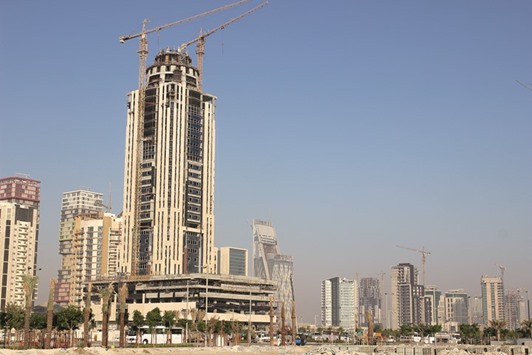Jon Sanderson and Matthew Schofield, Quantum Global Solutions Associate
Directors continue their series of articles on the construction industry … this month
discussing the the important questions to answer ahead of a project beginning
Last month we discussed should the same project management techniques and procedures be used on every type of project, irrespective of its size and importance. In our view, for a project to be successful, project management techniques and procedures are essential no matter what the size of the project and missing a single element can put the project at risk. Therefore, for best practice all tools and techniques used in the process are required to be reviewed, used or eliminated.
But before any process can be followed, what should be asked and completed before the project actually starts? The objective is to eliminate any chance of failure or any chance of putting the contractor at risk, considering unmanaged risk may equate to potential loss of money. Also, asking pertinent questions before a project starts shows that the contractor is a professional organisation that cares about the project, its people and the overall process.
What is the right time to ask the tough questions, about process, organisational politics and risks? Asking direct questions will hopefully go a long way to ensuring that the right processes suitable for the project are applied. Furthermore this sets the right expectations in regards to how the team integrates and communicates.
So going back a few steps and understanding the goal of the project will help in devising a project strategy and having an ultimate objective, which assists in keeping the team focused and all on message. Knowing the goal also helps in understanding the project deadlines and why the deadline is the deadline. This is also the case of knowing if the deadline isn’t met, what are the costs and penalties or repercussions to the contractor.
The deadline has to be realistic when the plan is formed, there is no point having a 12 month project, when procurement of a certain item for the project takes 12 months – the deadline can therefore not be met. A perfect way to remember this (and is incidentally the same as any Key Performance Indicator) is to be SMART – Specific, Measurable, Achievable, Relevant and Timely. Using these acronyms as a rule of thumb should help to hit any target.
What is success? Knowing what success looks like will assist in setting the team up for success and all working towards the same result. It is evident that many projects fail as no one knows what success is, or everyone has a different idea of what success is for the project, one man’s success is another man failure so to speak! Having the team all on message and wanting to achieve the same success is key.
A further key question to address is who actually owns the project? Communication with the right stakeholders at the right time provides a great insight into how the whole of the project functions. Determining whether communication is dealt with through personal meetings, a phone call or emails, and understanding who are the main points of contact, will ultimately be a key factor in the project’s success.
Communication is a two-way street and listening to others is just as important as talking. In theory, communication is just a simple act of transferring information from one place to another; however, projects fail due to communication being poor or there being no communication plan. Understanding communication is just as important as the project itself. This extends to within the team and asking if anyone has completed this type of project before and knowing and understanding the team’s experience will only help, but not asking or wanting to know serves no constructive purpose.
It is clear that communication is a key requirement in any walk of life, but in a project not being able to present your plan or explain a process can prove costly to both employer and contractor. It is worth remembering that not all clients can read a technical drawing or understand hip construction jargon! So making that effort to explain in terms that are understandable helps all involved – know your audience to ensure everybody is on the same page and are all aligned to the objective of a successful project.
Obviously, events and situations happen that we don’t plan or expect, so in this context I use a quote by Tooey Courtemanche, “If you make a mistake, own it and move quickly to fix it.” More often than not there are no hiding places on fast track construction schemes. And although we are human and mistakes happen, it is how we deal with the mistake and by asking the right question at the right time that helps and is the key for success.

Lusail City under development. Knowing what success looks like will assist in setting the team up for success and all working towards the same result. Photo by Jack Murphy
